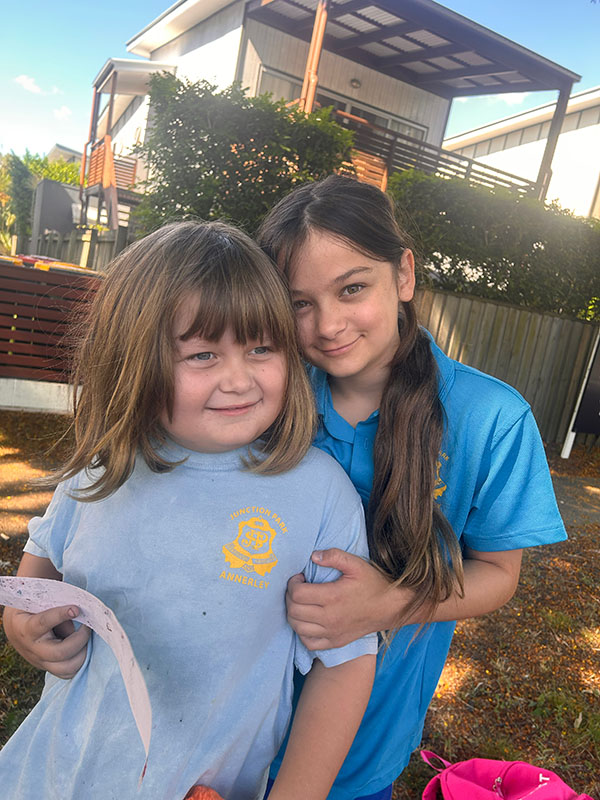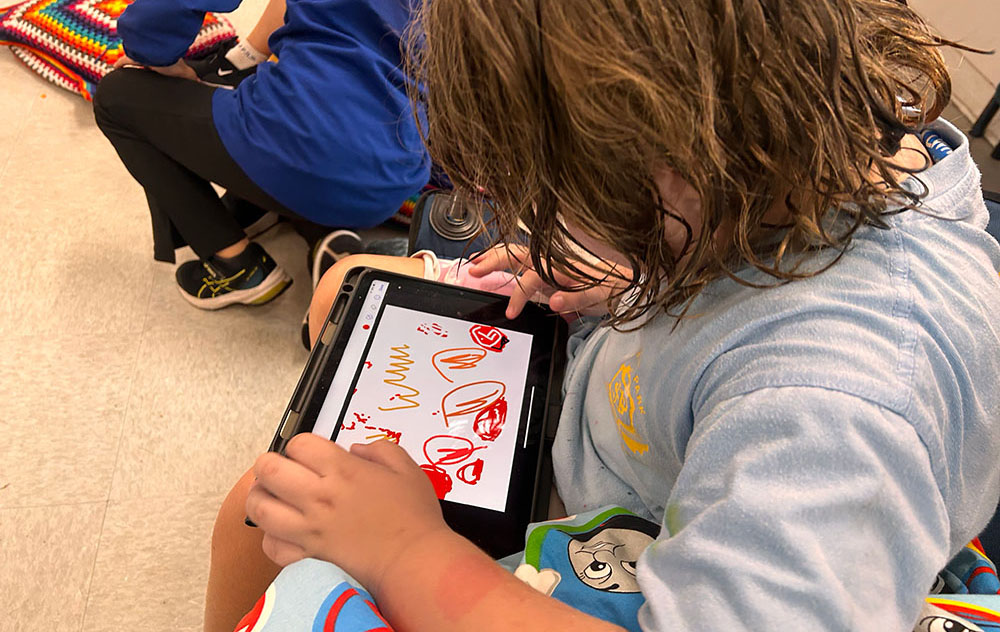 Arkie and his sister Luca.
Arkie and his sister Luca.
When Lenine first considered education options for her son Arkie, she knew his disabilities didn't limit his potential. She wanted a learning environment that supported his development and provided the opportunities he deserved, just like any other child.
'After speaking with other parents with similar experiences, I realised that Arkie had the potential to thrive in a mainstream school,' she says.
'I wanted him to be surrounded by children who could verbally and non-verbally communicate and who would help him grow.
'I knew that with the right support, the local state school could give him the opportunities he deserved.'
Building an inclusive environment
When Arkie first arrived at the Junction Park State School in 2024 as a young Prep student, Lenine recalls feeling a wave of relief when the principal assured her, 'We'll do whatever it takes.'
'From the moment Arkie arrived, we knew it was about more than just adjusting our environment,' says Junction Park State School Principal, Megan Reeves.
'It was about understanding who he is and what he needed to thrive. Every adjustment we made, big or small, was aimed at helping Arkie feel like he belonged here, which was the key to his success.'
Lenine, had already built relationships with the school's community and parent network, which proved invaluable in the months ahead.
'The open communication between the school, the support staff, and myself was crucial in ensuring any barriers Arkie faced—whether they were related to his physical needs, his pacing around the room, or his difficulty sitting still—were addressed quickly and effectively,' she says.
Lenine emphasises that being actively engaged is not just about overseeing the process but being a partner in it.
'It's not just about relying on the school to handle everything. You need to be there to guide, offer feedback, and make sure things are working well for your child,' she says.
'Volunteering, attending meetings, and communicating closely with the teachers and support staff are essential.
'It's about being part of the team, ensuring your child gets the support they need.'
One of the most notable adjustments was providing Arkie with a comfortable space in the classroom that accommodated his physical disabilities, like using a specialist chair that allowed him to sit alongside his peers rather than be isolated.
'The other students have really embraced this and understand that these adjustments help everyone participate more fully in the class,' says Anita Murnane, Head of Special Education Services at Junction Park State School.
'It's all part of making sure Arkie—and all the students—feel that they belong here.'
A supportive peer network

As Arkie's classmates became familiar with his communication style and needs, they, too, began to play an essential role in his inclusion.
'The kids quickly learned how to communicate with Arkie in their own way. They'd come to me and say, “Arkie did this today,” or “He wanted to do this.” It wasn't just the teachers who were supportive; it was the entire class,' says Lenine.
This collaboration between Arkie and his peers became critical to his successful inclusion.
'As we worked with Arkie, we noticed how his peers started advocating for him,' says Anita Murnane.
'They would suggest things like, “Can we use the blocks so we can be at Arkie's table?” They recognised that by including Arkie, they also learnt new ways to communicate and collaborate.'
Inclusive education in practice
Arkie's story also reflects the broader values embedded in
Queensland's Department of Education's inclusive education policy.
The policy emphasises the importance of providing all students access to a high-quality education in an inclusive environment, supported by tailored adjustments that meet their needs.
The experiences at Arkie's school exemplify these principles in action. From the initial stages of enrolment to ongoing collaboration with teachers, staff, and external support teams, Junction Park State School has cultivated an environment that values each student's potential, nurtures a sense of belonging and ensures that every student has the opportunity to learn and thrive alongside their peers.
'Every child, regardless of their circumstances, deserves the opportunity to be part of the community and access a fulfilling public education,' Lenine says
'It's not just about making room for students with complex needs. It's about shifting the way we think about education and making sure everyone has a place.'
As Arkie continues to grow at Junction Park State School, Lenine is determined to keep advocating for a more inclusive approach to education.
'I hope to work with the school to develop tools for staff to help capture what Arkie knows and how we can document his progress,' she says.
'And I want to make sure that the resources we create for Arkie can also benefit other students with different learning needs.
'We can't expect children to fit into one mould. We need to create the mould around them.'